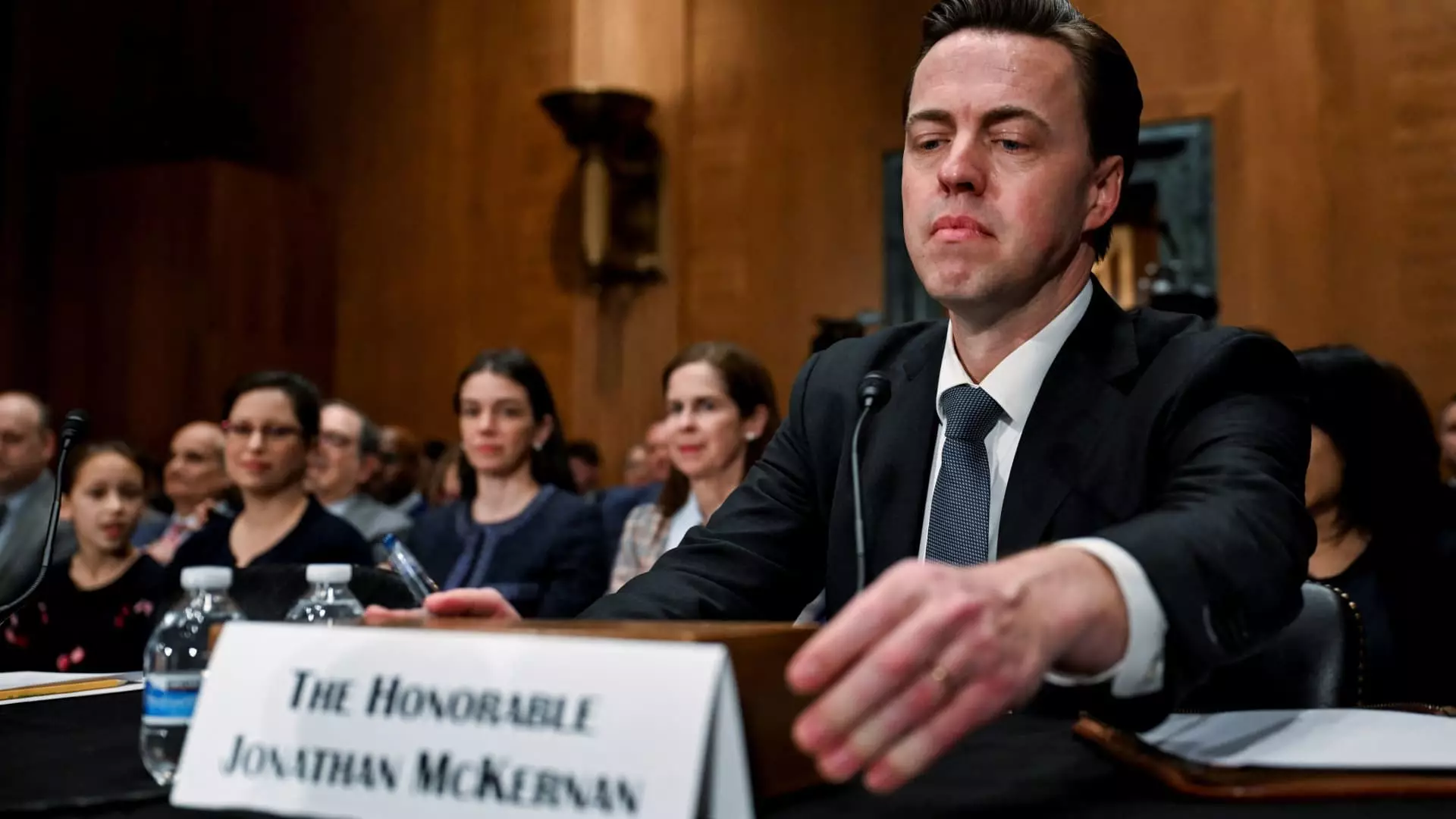The Consumer Financial Protection Bureau (CFPB) has become a focal point in the ongoing debate over consumer protections and financial regulation in the United States. Recently, Jonathan McKernan, President Donald Trump’s nominee to lead the agency, faced a rigorous confirmation hearing that highlighted concerns about the agency’s future and its mission under new leadership. The interrogation by Senate Democrats, particularly by Elizabeth Warren, demonstrates a significant clash between differing visions for the CFPB, raising questions about accountability, consumer protection, and the agency’s legitimacy.
Established in the wake of the 2008 financial crisis, the CFPB was designed to safeguard consumers from potentially predatory financial practices. Its creation was a response to widespread abuses in the financial sector that contributed to economic turmoil, highlighting the necessity for strong regulatory oversight. The agency’s mission encompasses a range of consumer protections, ensuring fair lending practices, transparency in financial products, and the availability of resources for consumer complaints. However, its path has been fraught with political tensions, especially as leadership has changed under differing presidential administrations.
During his confirmation hearing, McKernan was met with pointed inquiries regarding the extent to which he would honor the legal obligations of the CFPB. He asserted his commitment to “fully and faithfully” enforce the laws governing consumer protection. Yet, his comments reflected a fundamental disagreement with the agency’s previous leadership under Rohit Chopra, whom he accused of politicizing the bureau and overstepping its legal bounds. This perspective portrays McKernan as seeking a recalibration of the CFPB’s approach, advocating for a return to its core mission while suggesting that prior actions may have inadvertently harmed consumers by driving up costs.
Significant apprehension surrounds the recent operational shifts under the temporary leadership of Russell Vought, who has initiated severe budget cuts and structural changes that raise alarms about the agency’s future. The dismissal of lawsuits against major financial entities, along with the firing of numerous employees, has prompted speculation about the agency’s potential dismantlement. McKernan’s acknowledgment that the CFPB must be “right-sized” implies an acceptance of these transformative measures, but it leaves many apprehensive about the implications for consumer advocacy and protections. Critics, including Warren, have likened his nomination to leading the bureau into an inevitable demise, likening it to heading “to the glue factory.”
Warren’s tenacious questioning revealed a deeper concern about McKernan’s ability to navigate the political landscape that surrounds the CFPB. She enumerated critical statutory obligations, such as maintaining functional communication channels for consumer complaints and ensuring support for specific consumer advocacy offices. McKernan’s responses suggested a willingness to comply, yet skepticism looms regarding whether he can effectively administer these mandates under an administration that appears to lack support for the agency’s existence.
Senator Jack Reed echoed these sentiments, emphasizing the precarious position McKernan may occupy. The suggestions that both the President and Vought aim to eradicate the CFPB raise serious doubts about the potential efficacy of its leadership. The agency’s recent operational decisions, including the shuttering of its headquarters and the halting of vital enforcement activities, amplify concerns about the CFPB’s overall direction.
As McKernan’s confirmation process unfolds, the stakes for consumer financial protection remain at a critical juncture. The CFPB was established to stand as a bulwark against systemic abuses in the financial sector, but its future under McKernan could signal either a rebound into responsible governance or a capitulation to political agendas. The vision for the agency, highlighted by past leadership controversies and recent operational shifts, reflects a broader struggle between consumer advocacy and political maneuvering. For everyday Americans who rely on consumer protections, the outcomes of this confirmation hearing may well shape the landscape of financial regulation for years to come.


Leave a Reply